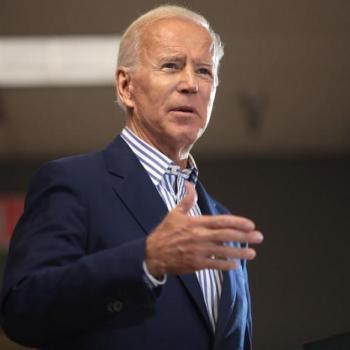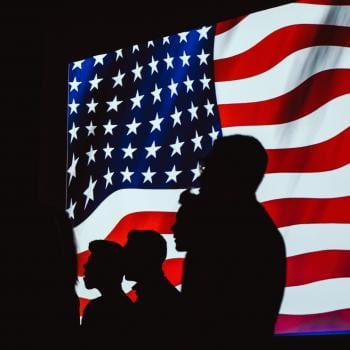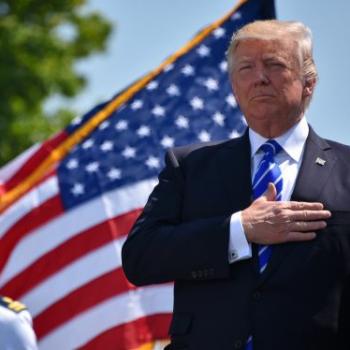
by Jalaja Bonheim, Ph.D
Most of us prefer to hang out with people who share our political views. This is only natural—as they say, birds of a feather flock together. Yet our habit becomes problematic when instead of approaching the “others” as friends who happen to see things differently, we start treating them as enemies. Sadly, in our country, this has become the new norm. On both sides, vitriolic expressions of contempt and disdain, anger and hatred have become commonplace.
Personally, I neither like Donald Trump nor do I trust him. Still, I would like to understand who his supporters are and how they think. So recently, I started asking around, “Do you know any Trump supporters?”
Many people told me they did, but avoided discussing politics with them. “It’s useless,” they said with a shrug. “What’s the point? It just leads to bad blood.”
Well. My work is all about bringing people together who might otherwise never meet and helping them find common ground. For years, I’ve been leading groups that unite Jewish and Palestinian women in the Middle East. If they can connect in ways that feel fruitful and fulfilling (and I assure you, they can), then so can we.
I’m happy to say that I’m now part of a small group of concerned citizens, mostly Trump supporters, who have agreed to meet and share their thoughts and feelings in honest and open yet respectful ways. Our group is still young, but already, I feel a tremendous sense of relief. It didn’t take long for us to discover that we really are friends, not enemies. Even though we may never agree on many issues, we care and respect each other and are committed to listening and learning from each other.
As I discuss in my recent book The Sacred Ego, the big obstacle we’re up against today is “us-versus-them” thinking. For millions of years, us-versus-them was simply a basic fact of life. Either someone belonged to your tribe or they didn’t. If they did, they were kin (a word not co-incidentally related to kindness). If they didn’t, they were potential enemies.
Today, we live in a globally interconnected world, yet our habit of categorizing people as “us” or “them” remains as strong as ever. Politics, race, religion, nationality, sexual orientation, gender, class—these are just some of the categories we use to determine whom we’re going to hang out with and whom we plan to avoid.
This habit might seem harmless enough. But let’s not forget that every war ever waged on our long-suffering planet had its beginnings in us-versus-them thinking. When different groups stop connecting, prejudice grows unchecked. In the absence of real contact and communication, fear-based fantasies proliferate and we close our heart to the others. At this point, we’ll readily consent to harming or killing them.
Today, we have weapons capable of annihilating our species a thousand times over. Under these circumstances, us-versus-them thinking has become a dangerous habit that we can no longer afford to indulge. We have become a single tribe, a single planetary family that will either sink or swim, depending on whether or not we find a path to peaceful co-existence. As Martin Luther King Jr. put it, “We may have all come on different ships, but we’re in the same boat now.”
Don’t get me wrong, I totally understand why we’ve stopped talking to each other. Who wants to expose themselves to attack and hostility? It’s easier to simply keep our views to ourselves. And in some cases, this is a very wise choice. Avoiding politics has saved many a Thanksgiving dinner from taking a disastrous turn.
Nonetheless, I think we should not give up on trying to initiate meaningful dialogue. My work in the Middle East has taught me that enemies can once again become friends, provided they are willing to meet face to face, speak respectfully, and listen with an open mind. Not everyone on the “other” side is a fanatic or a fundamentalist. Not everyone is impervious to new thoughts and ideas.
I would encourage you, therefore, to seek out people who hold different political opinions than your own, and who are willing to express their views and listen to yours. Here are a few tips to making it work.
4 Tips to Engage in Meaningful Political Dialogue:
- Never forget that from where the other stands, their choices make total sense. Try to put yourself in their shoes until you can see where they’re coming from. Even if you disagree, don’t interrupt them. Instead, just listen deeply, with an open heart and a sincere desire to understand.
- Let go of any need to “convert” others to your point of view. State the truth, as you see it, but don’t expect them to agree. Sometimes, they might say things you find disturbing. You might start feeling angry, upset or scared. In such moments, try to turn your attention towards yourself, without cutting off the other. Breathe deeply, acknowledge your feelings, and remind yourself that this person is not responsible for your emotions. You alone have the power to transform and release them. This person is merely giving you a great opportunity to do so.
- At all times, remember that the relationship between you and the other is precious and important. No matter how fiercely you might disagree, you are both doing your best to make sense of a confusing and complex world.
- Cultivate feelings of gratitude and appreciation for the other, and express them freely. Your intention should be that when they leave, they feel heard, respected and appreciated.
I promise you that if you listen to others with an open mind and heart, you won’t regret it. Let go of the desire to be right, and instead hold the intention of feeling connected with all those who love this country and want the best for it, regardless of where they stand politically.
 Jalaja Bonheim, PhD is an inspiring visionary, speaker and award-winning author of several books including: The Sacred Ego: Making Peace with Ourselves and Our World, which won the Nautilus Award for best book of 2015. Internationally renowned for her work in empowering women, she mentors and trains female leaders around the world. Bestselling author Marci Shimoff calls her, “the voice of the sacred feminine without which we cannot heal ourselves or our world.” She is the founder of The Institute for Circlework™ and one of the world’s foremost experts in the use of circle gatherings as a tool for connecting and healing individuals and communities. She has gathered special acclaim for her groundbreaking work with Jewish and Palestinian women in the Middle East. JalajaBonheim.com |instituteforcirclework.org.
Jalaja Bonheim, PhD is an inspiring visionary, speaker and award-winning author of several books including: The Sacred Ego: Making Peace with Ourselves and Our World, which won the Nautilus Award for best book of 2015. Internationally renowned for her work in empowering women, she mentors and trains female leaders around the world. Bestselling author Marci Shimoff calls her, “the voice of the sacred feminine without which we cannot heal ourselves or our world.” She is the founder of The Institute for Circlework™ and one of the world’s foremost experts in the use of circle gatherings as a tool for connecting and healing individuals and communities. She has gathered special acclaim for her groundbreaking work with Jewish and Palestinian women in the Middle East. JalajaBonheim.com |instituteforcirclework.org.













